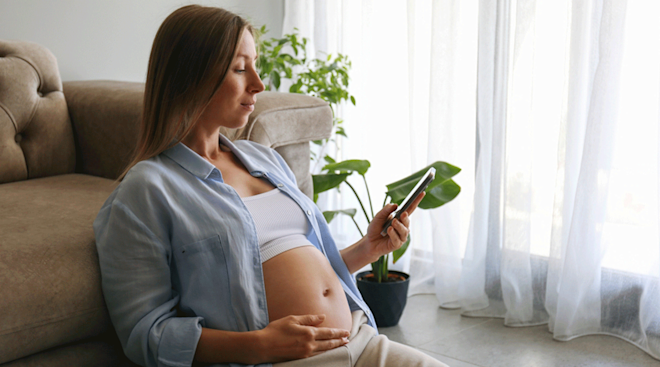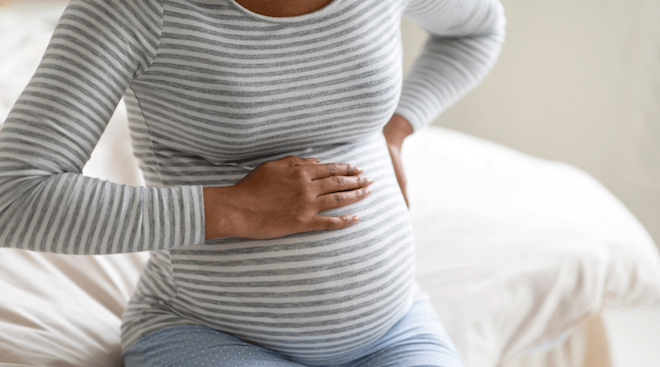Why You Might Experience Loss of Appetite in Early Pregnancy (and Beyond)
Pregnancy has a reputation for making expectant moms and pregnant people hungrier than usual, so it can be surprising when you’re suddenly not as into food as you once were. But loss of appetite in early pregnancy (or later on in the journey!) can happen—and it’s more common than many people realize.
There’s no need to panic if you feel like you have no appetite during pregnancy, but it’s definitely something to bring up with your doctor at your next appointment. Here, experts explain what could be causing your loss of appetite in the first, second and third trimester.
Despite all the talk about “eating for two” during this time, loss of appetite while pregnant is normal. “There are a lot of things that can cause this,” says G. Thomas Ruiz, MD, lead ob-gyn at MemorialCare Orange Coast Medical Center in Fountain Valley, California. Nausea and baby taking up space in your abdominal area are two of the main reasons why you might not be hungry. But, remember, every person—and every phase of pregnancy—is different. Read on to learn more about why you might experience loss of appetite in different trimesters through pregnancy.
Is loss of appetite a sign of pregnancy?
There are a lot of different things that are signs of pregnancy, including having tender breasts and experiencing nausea. But is loss of appetite a sign of pregnancy? “Loss of appetite can be a sign of pregnancy,” says Jennifer Wu, MD, an ob-gyn at Northwell Lenox Hill Hospital in New York City. “It’s just not one of the most common signs.”
Your appetite may change throughout pregnancy, and the reasons can vary by trimester. “During the first trimester, it’s not unusual that a patient will have a lot of morning sickness or all-day sickness where they don’t feel like eating,” Wu says.
Food aversions, which happen when you have a strong dislike for a food, are also common in the first trimester and can throw your appetite off, Ruiz adds.
The second trimester has a reputation for being the best part of pregnancy, because morning sickness tends to fade by then. But it’s still possible to have a loss of appetite during this time. Unfortunately, for some, these aversions can last beyond the first trimester—and even for the entire pregnancy, Wu says. At the same time, pregnancy hormones can slow down how fast food moves through your gut. “That can make you feel less hungry,” Ruiz adds.
If you have no appetite while pregnant in the third trimester, food aversions and pregnancy hormones may still be playing a role. Another factor? Your stomach is getting pushed up higher into your abdomen as your bump grows, Ruiz notes. For this reason, you’ll usually feel full sooner, due to lack of space.
There are a few different things you can do to try to deal with loss of appetite, whether you’re experiencing it early in your pregnancy or later on.
- Try carbs: In the first trimester, when you may be dealing with nausea and vomiting, Wu says “it’s important just to get calories in.” That’s why she recommends having “plain, salty carbs” like bagels. “They don’t tend to be smelly or overly flavorful,” which can help combat morning sickness, she says.
- Avoid your food aversions: It sounds simple, but Wu stresses that you don’t need to keep trying to eat foods that are off-putting to you, no matter how healthy they are. “If patients say, ‘I can’t even look at salad and I can’t stand the smell of chicken,’ I tell them not to eat those,” she says.
- Focus on small meals: Big meals can be overwhelming and hard to get down if you’re already dealing with a lack of appetite. “Eat small, frequent meals every two hours,” Ruiz says, and stick to healthy snacks
- Hydrate how you can: Staying on top of your water intake is crucial during pregnancy—but you don’t have to stick to plain tap water. For example, “If a patient tells me, ‘I can’t even look at water but I can drink lemonade,’ I’ll tell them to mix it half and half with water,” Wu says. Watermelon is another great source of water, particularly during the summer.
- Give yourself some grace: “If you can only eat peanut butter and jelly sandwiches, that’s fine,” Wu says. “Eat what you can get down.”
Having a lack of appetite can be hard during pregnancy, especially when you’re told over and over to eat nutritious meals. Overall, if you’re having a lack of appetite in pregnancy, it’s important to flag it with your provider. They’ll likely want to keep a closer eye on you, just to make sure you’re still gaining weight and getting the nutrients you and baby both need.
Please note: The Bump and the materials and information it contains are not intended to, and do not constitute, medical or other health advice or diagnosis and should not be used as such. You should always consult with a qualified physician or health professional about your specific circumstances.
Plus, more from The Bump:
G. Thomas Ruiz, MD, is an ob-gyn at MemorialCare Orange Coast Medical Center in Fountain Valley, California. He earned his medical degree from UC Irvine School of Medicine and completed his residency at White Memorial Medical Center.
Jennifer Wu, MD, is an ob-gyn at Northwell Lenox Hill Hospital. She earned her medical degree from University of South Carolina at Charleston and completed her residency at Lenox Hill Hospital in New York.
Learn how we ensure the accuracy of our content through our editorial and medical review process.
Navigate forward to interact with the calendar and select a date. Press the question mark key to get the keyboard shortcuts for changing dates.




















































